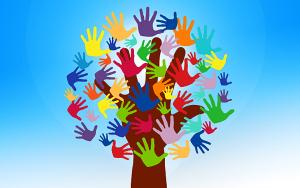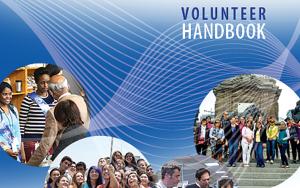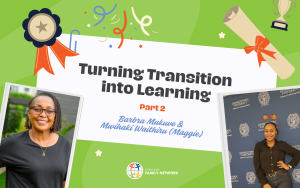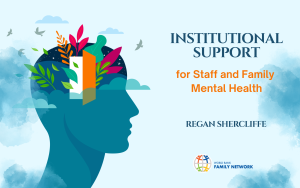
Prepared By: Malahat Baig-Amin, Lead Clinician Bank / FUND Domestic Abuse Prevention Program - October 2020
COVID-19 has caused major social and economic devastation, disconnected many from community resources and support systems, and created widespread uncertainty and panic. Prior to the pandemic, estimates by the World Health Organization suggest 35% of women worldwide experience some form of physical and / or sexual abuse by an intimate partner. In the United States, studies show that almost half of all female homicides are from a current or past male intimate partner (Centers for Disease Control and Prevention, 2017). Emerging data shows that since the outbreak of COVID-19, reports of domestic abuse, and particularly abuse against women, have increased globally as security, health, and economic concerns create tensions and strains accentuated by the cramped and confined living conditions of lockdown.
Domestic abuse occurs in almost all communities around the world regardless of culture, religion, education or economic background. Domestic abuse is defined as a pattern of coercive (forced) behavior used by one person in an intimate relationship to gain or maintain power and control over another person. Although the majority of cases of domestic abuse consist of men abusing women, men can also be victims of abuse, as can same sex partners. In all cases, domestic abuse is about the use of power and control techniques to hurt an intimate partner. Domestic abuse is often veiled as private matter to protect the family and minimize shame.
There are several types of abuse and many ways in which an individual may experience domestic abuse including, verbal, emotional / psychological, sexual and financial abuse as well as stalking. While physical abuse is visible and appears worse, the invisible scars of verbal and emotional abuse can be potentially more psychologically damaging than physical abuse. The prevalence of domestic abuse is so immense that most of us have experience with it ourselves, or have knowledge of someone who has experienced abuse by an intimate partner.
For many victim-survivors of domestic abuse, home is dangerous place. The stay-at-home restrictions amount to a forced co-habitation – essentially, this is a recipe for domestic abuse. Quarantining and social isolation have led to an increase in domestic abuse. Victim-survivors, even without the pandemic situation and social distancing measures, already tend to be isolated from their friends, family, and support networks.
The current crisis of COVID-19 has made victim-survivors more vulnerable. The mitigation measures stimulate abuse in families where it didn’t exist before and worsen situations in homes where mistreatment and abuse has been a problem. Although, stress is not the cause of domestic abuse, it can aggravate and catalyze domestic abuse in situations where stress is heightened. Staying home may be more dangerous for individuals dealing with domestic abuse— the added stress can lead to explosive episodes of violence.
Victim-survivors may be unable to reach out due to surveillance by the abuser. Perpetrators of abuse are using the stay-at-home situation as an opportunity to further exert control over their victims. Police may have reduced presence due to COVID. Challenges arising from COVID shutdowns may make it more difficult for victims to leave an abusive situation. Additionally, travel restrictions may impact a survivor’s safety plan– it may not be safe for them to use public transportation or to fly. Victims are trapped in their homes with predatory spouses/partners and dependents but cannot escape due to COVID lockdowns/quarantines.
An abusive partner may escalate isolation tactics by creating new ways to abuse victim-survivors by generating fear, such as:
- Coughing on children and spouses / partners
- Depriving family of soap, hand sanitizer, critical medication
- Withholding insurance cards, threatening to cancel insurance, or preventing survivors from seeking medical attention
- Inviting guests who are said to be infected with COVID
- Preventing spouse/partner from leaving to get essential supplies
- Forcing partner to leave home – in extreme weather/without child
- Changing child custody arrangements or co-parenting
Children are also especially vulnerable to abuse during the pandemic. Increased stress levels among parents is often a major predictor of physical abuse and neglect of children. To add to the tension, children are also experiencing their own stress and uncertainty about the pandemic. Stressed parents may be more likely to respond to their children’s anxious behaviors or demands in aggressive or abusive ways.
Domestic abuse not only affects those who we serve outside the WBG, but also the WBG staff and their families. In these challenging times, WBFN and the WBG recognize that some staff and their families might find themselves in unsafe situations at home.
The World Bank Domestic Abuse Prevention Program
The WBG DAPP was established almost 20 years ago due to the advocacy efforts of WBFN. DAPP provides free and confidential assessments, counseling, safety planning, case management and referral services to individuals dealing with domestic abuse at Headquarters in DC and Country Offices throughout the world. A 24-hours and 7-days a week hotline is available for crisis support. The goal of the DAPP is to help empower individuals through a process of support, information and resources so that they can make informed decisions and get the help they need.
The DAPP consists of a multi-cultural and multi-lingual team of professionals trained to deal with the very distinct issues that many individuals dealing with domestic abuse face. The DAPP case manager is available to conduct an intake and connect individuals seeking help to licensed counselors who will provide counseling, coaching and referrals. The Domestic Abuse Prevention Coordinator is able to also consult with managers and supervisors to provide guidance, consultation and awareness training.
Domestic abuse can happen to anyone and the WBG is committed to providing confidential support. If you or someone you know is dealing with domestic abuse, it is important to know that support is available.
The World Bank Group's Domestic Abuse Prevention Program: 202-458-5800
In case of a life threatening emergency: 911 (for HQ in the US)
For country offices, contact local safety resources or Corporate Security’s 24/7 emergency +202 458-8888 or +202 473-3333 SMS +202 460-9244






